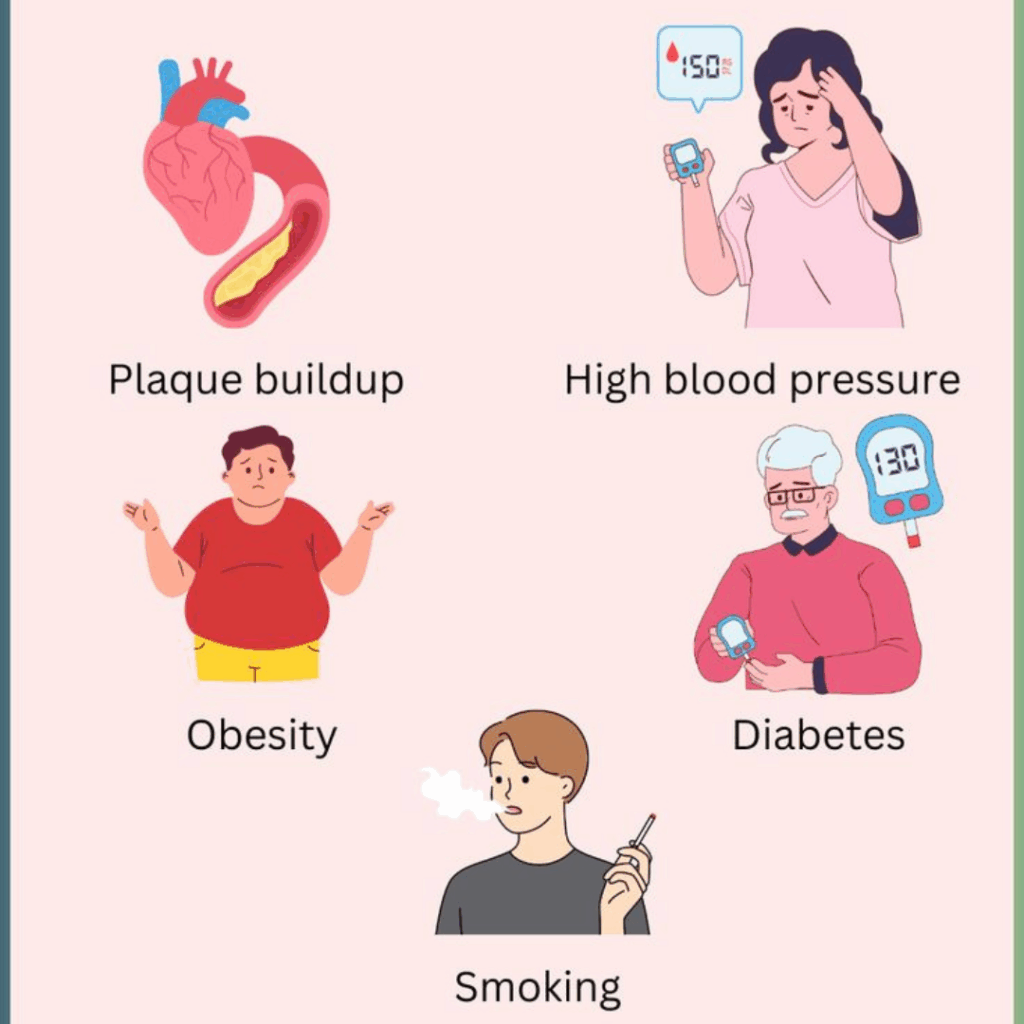
For decades, heart attacks were considered a problem for older adults, typically striking men in their 50s or 60s. But today, a disturbing trend is emerging — more men in their 20s and 30s are suffering from heart attacks and cardiac arrests, often without any prior warning signs.
This alarming shift highlights the urgent need for early awareness and preventive action. If you’re a young man focused on your future, now is the time to prioritize heart health and seek regular guidance from a Heart Specialist in Hadapsar to reduce your long-term risks.
Causes of Rising Heart Attacks in Young Men
Modern life has transformed the way we live — and not always for the better. These are some of the leading causes behind the surge in heart attacks among young men:
- Sedentary lifestyle: Long hours at desks and minimal physical activity slow metabolism and increase fat buildup.
- Poor diet: Fast food, processed meals, and sugary beverages contribute to obesity, cholesterol, and arterial blockages.
- Smoking and alcohol: These habits damage blood vessels and significantly raise the risk of cardiac problems.
- Chronic stress: Constant work pressure, financial worries, and digital overload elevate blood pressure and weaken the heart.
- Genetics: A family history of heart disease further heightens risk — making regular screenings essential.
Why Are Heart Attacks Increasing Among Young Men?
The root of this growing crisis lies in lifestyle evolution. The rise of technology, urban living, and work-from-home setups has made life more convenient — but also more dangerous for heart health. Here’s why heart attacks are becoming more common among younger generations:
- Lifestyle diseases are appearing earlier: Conditions like diabetes, hypertension, and obesity, once seen in older adults, now affect people in their 20s.
- Sleep deprivation: Irregular sleep disrupts hormone balance, increases stress levels, and strains the heart.
- Dietary changes: Reliance on processed and packaged foods leads to chronic inflammation and arterial damage.
- Environmental stressors: Pollution, fast-paced city life, and mental fatigue further add to cardiovascular risk.

Warning Signs Young Men Should Never Ignore
Even if you’re young and active, certain symptoms should never be overlooked:
- Persistent chest pain or heaviness
- Shortness of breath, even without exertion
- Frequent fatigue or unexplained weakness
- Dizziness, nausea, or heart palpitations
- Discomfort in the jaw, back, or left arm
If you notice any of these signs, seek immediate medical help from a Heart Specialist in Hadapsar or a nearby cardiac care facility.
Essential Prevention Tips for Young Men
The good news is that heart disease is largely preventable. By adopting small, consistent lifestyle changes, you can dramatically reduce your risk of a heart attack.
Focus on a Heart-Healthy Diet
- Replace processed foods with fresh, whole meals.
- Eat plenty of vegetables, fruits, whole grains, and lean proteins.
- Incorporate heart-protective nutrients like omega-3 fatty acids.
Stay Active
- Aim for at least 30–45 minutes of exercise five days a week.
- Combine cardio (walking, jogging, cycling) with strength training.
Manage Stress
- Practice meditation, yoga, or deep-breathing exercises.
- Engage in hobbies that help you relax and disconnect.
Prioritize Sleep
- Ensure 7–8 hours of quality sleep every night.
- Maintain a regular sleep schedule and limit screen time before bed.
Quit Smoking & Limit Alcohol
- Smoking damages arteries and accelerates plaque buildup.
- Moderate alcohol intake to support long-term heart function.
Regular Health Screenings
- Monitor cholesterol, blood pressure, and blood sugar levels.
- Early detection enables proactive treatment and lifestyle changes.
Extra Care for High-Risk Groups
If you have a family history of heart disease or metabolic conditions, take extra precautions:
- Begin regular heart check-ups in your 20s.
- Monitor vital health metrics more frequently.
- Maintain a balanced lifestyle and avoid risky habits.
Expert Advice for Long-Term Heart Health
- Eat balanced meals and stay hydrated.
- Keep stress in check through mindfulness and time management.
- Never ignore early symptoms — even minor chest pain deserves attention.
Conclusion
Heart attacks are no longer just a concern for the elderly — they are a real and rising threat for young men. The choices you make today can shape your heart health for decades to come.
By embracing healthier habits, staying active, managing stress, and prioritizing regular check-ups, you can significantly reduce your risk. Most importantly, consult a Heart Specialist in Hadapsar for preventive care, screenings, and expert guidance to keep your heart strong and healthy well into the future.
FAQs: Tips for Young Men to Avoid Heart Attack Risks
- At what age should men start heart health check-ups?
Men should ideally begin heart check-ups in their mid-20s, especially if they have risk factors like obesity, diabetes, or a family history of heart disease. Early screenings help detect high blood pressure, cholesterol, or other issues before they turn serious. Preventive care at a younger age significantly reduces long-term heart risks. - Can stress alone cause a heart attack?
While stress alone may not directly cause a heart attack, chronic stress triggers hormonal changes that raise blood pressure and inflammation. Over time, this weakens blood vessels and increases plaque buildup, heightening the risk. Managing stress through relaxation techniques and lifestyle balance is crucial for heart health. - How much exercise is needed for heart health?
Experts recommend at least 150 minutes of moderate-intensity exercise or 75 minutes of vigorous activity per week. Regular physical activity helps control weight, reduce cholesterol, and improve blood circulation. Even simple activities like brisk walking, cycling, or dancing can significantly strengthen your heart. - Are heart attack symptoms different in younger men?
Yes, symptoms in younger men may be subtle and easy to overlook. They can include mild chest discomfort, unexplained fatigue, shortness of breath, or nausea. Ignoring these early warning signs can be dangerous — even minor symptoms should prompt a visit to a cardiologist for evaluation.
5. Does sleep affect heart health?
Absolutely. Poor or insufficient sleep increases stress hormones, raises blood pressure, and disrupts metabolic balance. Over time, this can contribute to heart disease and other health problems. Prioritizing 7–8 hours of quality sleep daily is one of the simplest ways to support long-term heart health.
